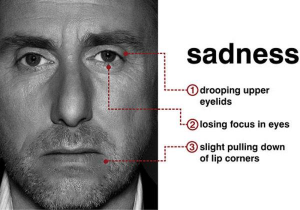What should I do if I think my employer is trying to force me to resign?
This Months Guess Blog has been writen by Contact Law
No successful organisation will always be popular with its staff; the occasional bruising encounter with management is an inevitable part of working life for most.
Far worse is the experience of an unlucky few who are regularly undermined or bullied by managers and supervisors; repeatedly being overlooked for promotion, humiliation in front of clients, formal warnings for trivial misdemeanors. Your employer’s behavior can become intolerable and you may conclude that you are being forced out.

This situation can lead to a “constructive dismissal”; where an employee resigns due to a serious breach of contract by their employer that they believe left them no choice but to do so. The breach can be of an “implied term” of your employment contract, like the requirement that your employer should avoid damaging the relationship of trust and confidence with you. A serious breach might include your pay being withheld, being made to work in dangerous conditions, or harassment.
So, you believe your employer’s behavior is a serious breach of contract. Can you joyously hand in your notice, anticipating an award of damages for constructive dismissal?
Not yet; you should first try to resolve the problem internally, even if it seems futile and likely to prolong your misery. An Employment Tribunal is less likely to accept your claim for constructive dismissal if you resign without taking matters up with your employer first.
First, make a complaint on an “informal” basis (although technically informal make it a serious discussion and set aside a specific time). Ideally, have the meeting with neutral staff. For example, if your line manager is bullying you meet with their manager or with HR.
If this is unsuccessful initiate a formal grievance process. The standard procedure is normally in the company handbook, HR manual or your employment contract. If your employer’s procedure is unsatisfactory or nonexistent, consult the ACAS (Advisory, Conciliation and Arbitration Service) Code of Practice. This document is frequently referred to in employment law and sets out the minimum standards that a grievance process should follow.
You’ll probably feel nervous and emotional during the meeting. You may want to write down what you intend to say, and if you wish you can read this out in the meeting. It’s often a good idea to invite a colleague for moral support and as a witness to the meeting.
Hopefully the internal process achieves the desired outcome. If not, now is the time to consider resigning. Needless to say, you should consult ACAS or your trade union and get independent legal advice before you hand in your notice. Once you have confirmed that you have exhausted the amicable resolution process and have a strong case for constructive dismissal don’t delay in resigning. The Employment Tribunal might consider that you “accepted” your employer’s breach of contract if you continue to work for some time after it takes place.
A final piece of advice: keep a diary of all the relevant incidents and retain your notes and correspondence from the grievance process. Constructive dismissal claims are known for being hard to prove. Make sure that if you have to resign, you are able to provide a detailed and convincing explanation of why your employer’s conduct left you no choice.
This article was provided by 
If you enjoyed this article you will also enjoy reading:

















